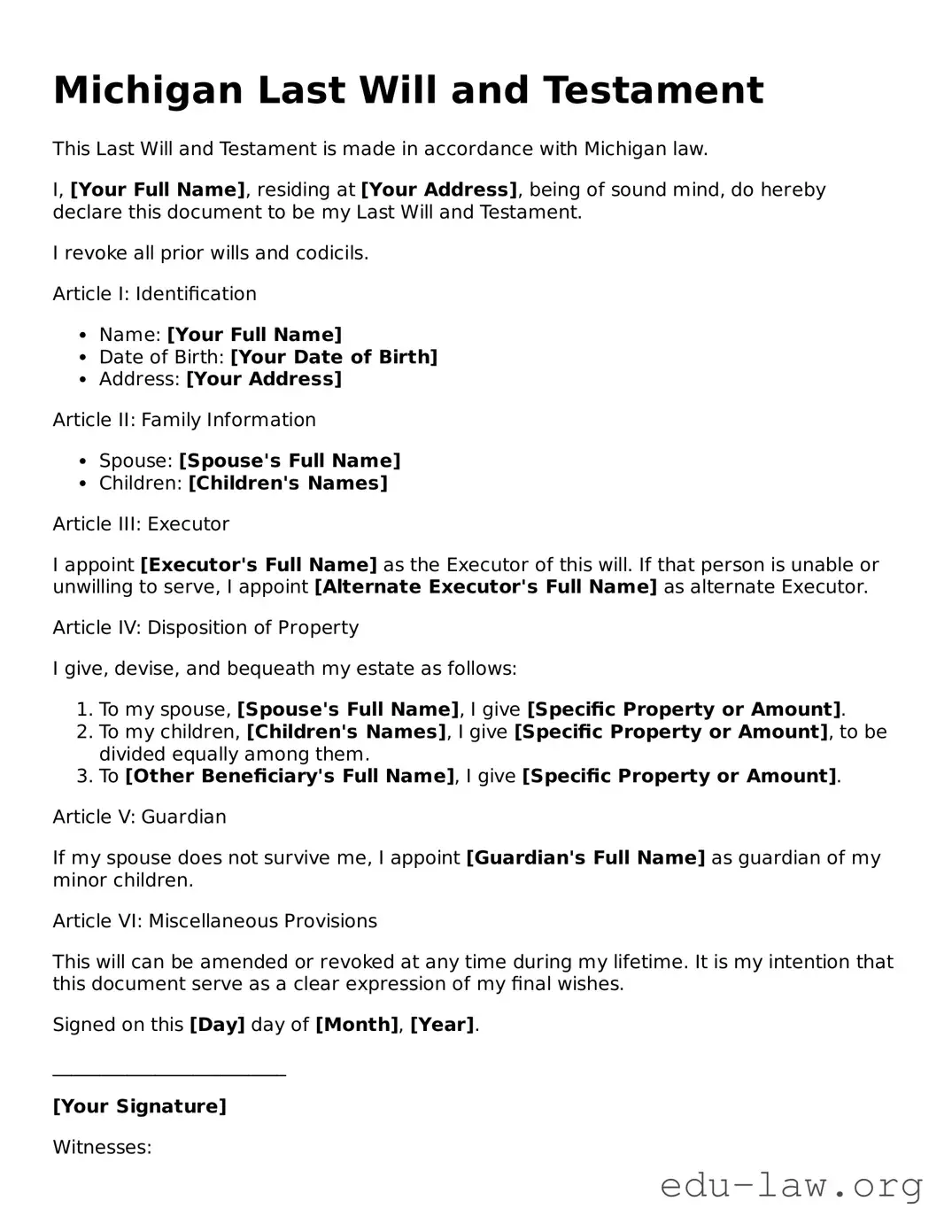Michigan Last Will and Testament
This Last Will and Testament is made in accordance with Michigan law.
I, [Your Full Name], residing at [Your Address], being of sound mind, do hereby declare this document to be my Last Will and Testament.
I revoke all prior wills and codicils.
Article I: Identification
- Name: [Your Full Name]
- Date of Birth: [Your Date of Birth]
- Address: [Your Address]
Article II: Family Information
- Spouse: [Spouse's Full Name]
- Children: [Children's Names]
Article III: Executor
I appoint [Executor's Full Name] as the Executor of this will. If that person is unable or unwilling to serve, I appoint [Alternate Executor's Full Name] as alternate Executor.
Article IV: Disposition of Property
I give, devise, and bequeath my estate as follows:
- To my spouse, [Spouse's Full Name], I give [Specific Property or Amount].
- To my children, [Children's Names], I give [Specific Property or Amount], to be divided equally among them.
- To [Other Beneficiary's Full Name], I give [Specific Property or Amount].
Article V: Guardian
If my spouse does not survive me, I appoint [Guardian's Full Name] as guardian of my minor children.
Article VI: Miscellaneous Provisions
This will can be amended or revoked at any time during my lifetime. It is my intention that this document serve as a clear expression of my final wishes.
Signed on this [Day] day of [Month], [Year].
_________________________
[Your Signature]
Witnesses:
As witnesses, we declare that the testator, [Your Full Name], signed this will in our presence.
_________________________
[Witness #1 Name]
_________________________
[Witness #2 Name]
